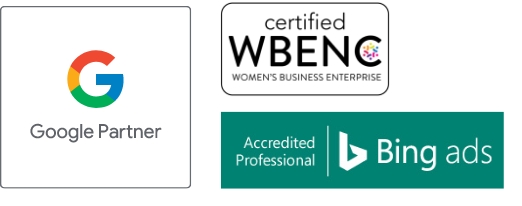
15 Tips to Ensure Your Emails Are Sending the Right Message
As a higher ed marketing professional, you already know your prospects, donors, alumni, and members of your campus community are using email. Data shows that in 2022, the ROI for every $1 spent on email marketing was $40. That means email marketing is an essential part of a solid digital strategy – as long as those emails are error-free.
Read on for a list of 15 expert tips to use with a test send that can help you eliminate any potential problems.
- Find and Fix Broken Links: One of the most critical aspects to check for in your test email is broken links. Click on every link in your email to ensure that it directs to the intended destination. Broken links can negatively impact your email’s effectiveness and negatively impact your brand, making it essential to detect and fix them before sending your email out.
- Don’t Forget Important Links: Don’t forget to double-check your images and buttons to ensure that everything that’s supposed to be linked is, indeed, linked. It’s common to use an image as a call-to-action (CTA) button, but it’s easy to forget to link it properly. Take a moment to verify that all anchor text, CTAs, social media follow/sharing icons, and images are correctly linked before sending out your email.
- Avoid Malfunctioning Social Media Sharing Buttons: Social media sharing buttons are a great way to expand your email’s reach, but they can be fragile and prone to malfunctioning. Test out all social media sharing buttons to ensure they’re working correctly. If a social sharing button doesn’t work, your recipients will be unable to share your content, leading to missed opportunities for engagement. What’s more, a malfunctioning button can harm your college or university’s reputation, so be sure to check and fix any issues.
- Stay Away From Spelling/Grammatical Errors: In the world of marketing, spelling and grammar are crucial factors that can impact the success of your email campaigns – and that’s even more true when you are representing higher ed. To ensure your email is error-free, consider using applications like Grammarly to catch any slipups. Always be sure to spell-check your email before hitting the send button. To avoid misspelling someone’s name, copy and paste the name from a place where you know it’s spelled correctly, like that person’s email signature or LinkedIn profile.
- Check Your Facts: Your prospects, students, donors, and partners want to know that your college or university leaders, faculty, and staff know their stuff. When you craft an email, it’s important to double-check any facts, statistics, or other information you include. Accurately representing your college or university’s admissions and enrollment, grade point averages, graduation rates, graduate employment rate, and other critical details will build trust in your institution.
- Inspect Image Quality and Alt Text: Images are a critical component of any email, but they can also be a source of frustration if they’re not displaying correctly. To ensure that your images are doing their job effectively, check that they are of good quality and are associated with appropriate alt text. This will provide context to the reader in case an image doesn’t render properly. Additionally, make sure that your images are displaying properly and are not distorted, stretched, squished, or pixelated.
- Fix Funky Formatting Issues: Formatting problems can make your email appear unprofessional and difficult to read, potentially reducing its effectiveness. Ensure that your email’s formatting looks how you intended it to, including proper bullet point display. Test the email by viewing it in various email clients and on different devices to make sure that the formatting is consistent.
- Don’t Overlook Potential Design Problems: Your email design should be visually appealing and easy to read. Confirm that your font color is clear and easy to read and that blocks of color don’t make the text layered on top difficult to read. Check that your college or university brand is easily recognizable, and that your message has a clear focus. Also, ensure that the colors used in the email are visible on all devices. Not all colors are suitable for emails, especially light colors, hues, and shades.
- Ensure That Your Subject Line and Sender Name Are Effective: The subject line and sender name are crucial in making a strong first impression and enticing recipients to open your email. Use a sender name that sounds like it’s coming from a real person at your college or university, rather than a generic email address. Keep your subject lines brief, informative, and under 50 characters. A well-crafted subject line and sender name can increase open rates and engagement with your email content.
- Comply With CAN-SPAM Requirements: To avoid legal trouble and protect your college or university’s reputation when engaging in email marketing, it’s crucial to comply with the CAN-SPAM Act. This involves providing a clear way for recipients to opt out of your emails, including your physical mailing address in each email, and ensuring that your “From,” “To,” “Reply-To,” subject line, and routing information are not misleading or falsified. It’s important to be aware of and follow all the requirements of the CAN-SPAM Act to avoid potential penalties of up to $16,000 per violation.
- Offer an Option to View in a Browser: Providing a link to the web-based version of your email is a simple yet effective way to ensure that your email appears as you intended, even if there are rendering issues on certain devices or email clients. Many email service providers allow you to automatically create a web-based version of your email. Including a link to the web-based version in your email provides recipients with an alternative way to view your content.
- Optimize for Plain Text: While HTML emails can be visually stunning, it’s essential to ensure that your email is also optimized for plain text. This guarantees that all recipients, regardless of their email client or device, can access your content. To optimize for plain text, make sure to include engaging email copy, shortened links, headers in all caps, and plain text bullet points. Additionally, use your email service provider’s plain text preview to test how your email appears to recipients who have plain text email settings.
- Ensure Accessibility Across Devices, Browsers, and Email Clients: To guarantee that your email looks and operates as intended, it’s important to test it across a variety of devices, browsers, and email clients. This includes testing on both desktop and mobile devices, as well as on various email clients such as Outlook, Gmail, and Apple Mail.
- Make Sure Your Emails Make Sense: Avoid academic jargon and clichéd higher ed buzzwords and phrases, and instead opt for clear and simple communications that will allow readers to understand exactly what you’re talking about – and what they should do next – on first read.
- Verify That Your Email Adds Value: Finally, ask yourself if the content of the email provides true value to the reader. The recipient of your email should be able to clearly understand why they should care about what you’re communicating. Ensure that your email delivers on its promise and provides the reader with a clear path to apply, enroll, sign up, donate, reconnect, RSVP to an event, or whatever other marketing goal you are trying to achieve. If you are sending an informative email, explain why your readers should care. To get a response, make sure you state your request at the beginning of the message.
In today’s digital age, email marketing is a crucial component of any higher ed digital strategy. If you’re too busy to build the right email marketing campaign for your college or university, or you’re not sure where to start, LIGHTSTREAM is here to help. Contact us today to learn how we can increase your efficiency through an expertly designed and executed email marketing strategy.
